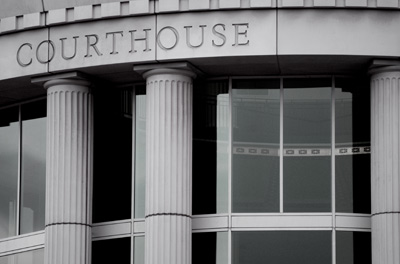Whether you consider litigation a necessary evil or just plain evil, the fact is litigation is a common dispute-resolution tool. Savvy business people can gain leverage through litigation, while the unprepared can be overwhelmed and lose ground, even when they are in the right.
Below are five key steps to capture, rather than lose, momentum when served with a lawsuit.
- Respond in a timely manner. If you don’t respond, you will be defaulted. That means you lose even if the facts and the law are on your side. Multimillion-dollar judgments are obtained regularly simply because a business fails to respond. Be sure that your company has a system for lawsuits to get to the right person so that a response is filed in time. Calculating the response date requires knowledge of the official date of service and the relevant court rules and laws. Response dates can vary greatly — from 5 to 60 days — depending on a variety of factors. If a lawsuit arises out of a contract under which the parties have agreed to privately arbitrate disputes (rather than litigate),
 a timely motion to compel arbitration must be filed or the right to arbitration is waived.
a timely motion to compel arbitration must be filed or the right to arbitration is waived. - Evaluate insurance coverage. Insurance is available to cover damages and attorneys’ fees arising from certain types of lawsuits. Generally, those policies require the insured to give prompt notice to the insurer of the claim or potential claim. So, make sure you review your policies and give proper notice to the relevant insurer even if coverage is not certain.
- Select counsel. Not every lawyer or law firm is right for every case. Litigation is highly specialized. Do not simply choose the lawyer with whom you are most familiar. Research, compare and contrast to select the legal team that is the most appropriate fit to defend each specific lawsuit. And be sure that the team you choose has the personality and character that fits well with your own team and your company culture. In terms of credentials, check references; consider peer review ratings such as Martindale-Hubbell, Best Lawyers in America, Super Lawyers and Florida Trend’s Legal Elite lists and also consider whether the lawyer is board certified by the Florida Bar in the relevant subject matter.
- Preserve evidence. Litigants have an obligation to preserve records, including electronic records that are or could be relevant to the dispute at hand. The consequence of failing to preserve records – or “spoliation of evidence” — can be the court striking your defenses or claims. The preservation of records is particularly challenging in the context of electronic records (e.g., financial data, journal entries, emails and text messages) that are automatically deleted by rule in the ordinary course. When such records are, or may become, relevant, litigants must take steps to discontinue the rule and implement a “litigation hold” to ensure that records do not get automatically deleted. This is a sensitive process that requires skilled counsel.
- Gather facts. Evidence gets harder to find and memories fade with time. It is critical to gather useful information and interview witnesses as soon as possible. This must be done practically and constructively and with the end goal in mind: preparing to defend the case at trial. Thorough, strategic preparation is not only the best way to win at trial, it demonstrates to the opposing party that suing your company was a mistake. And that’s how you obtain leverage.
Mike Freed is a Florida Bar board certified business litigator in Gunster‘s Jacksonville office.
